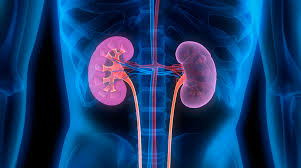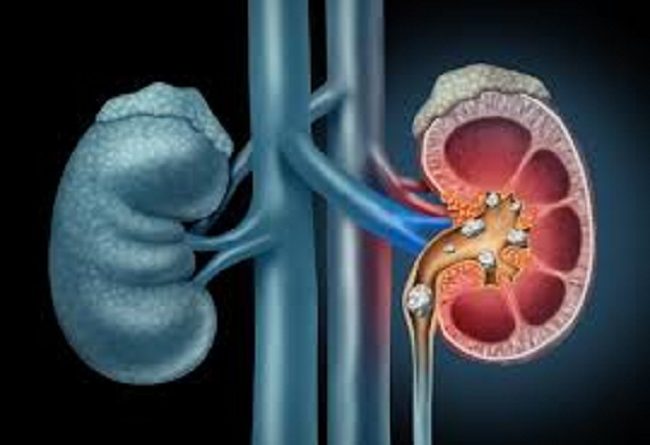Curbing The Burden Of Kidney Failure
As the world marks Kidney Day today, SEYI ODEWALE examines efforts being made to sensitize the public to the need to guard against this debilitating disease that drains people’s fortunes and knows no other cure except transplant.
In 2001, a few months after his wedding, Reverend Morgan Molokwu, now Tabugbo Morgan Uzoma, a priest of the Church of Nigeria (Anglican Communion) in Asaba, the Delta State capital, was down with renal failure.
He underwent several dialysis sessions to correct the organ. Having spent all he had on dialysis, the young man, with his wife, had to face the stark reality that he needed a transplant in order to live a normal life again.
But thank God for his church, public-spirited Nigerians, the media and his wife, Prisca, who came together to facilitate a kidney transplant for him. Prisca donated one of her kidneys to him and the surgery was successful.
However, due to complications, the grafted organ could not function properly. Tabugbo needed another organ. He was lucky and the second surgery has made him live to date.
Also in 2001, ace broadcaster, Steve Kadiri, was down with renal failure. He had a kidney transplant at the St Nicholas Hospital, Lagos. The transplant was a success, courtesy of an organ donated by his brother, Benjamin, which helped to bring back the ace radio Disco Jockey back to life.

Steve, got his life back though, it was short-lived. His body could not sustain the transplanted kidney. Reason: his immune system was suppressed for his body not to reject the transplanted kidney. He became susceptible to many diseases. He lost his left arm which was amputated to preserve his body and life. The hand became infected as a result of prolonged dialysis when the transplanted kidney failed. Sadly, in October 2009, Steve lost the battle and gave up the ghost.
However, not much has been done by the government or health policy formulators, except the media, which helped to pronounce it and raised funds for its treatment.
What is kidney failure?
Kidney disease is a non-communicable disease (NCD) affecting around 850 million people worldwide.
According to research, one in 10 adults has chronic kidney disease (CKD). The global burden of CKD is increasing and is projected to become the fifth most common cause of years of life lost globally by 2040.
According to Rev. Uzoma, who has since been an advocate of the disease in terms of awareness creation, over 30 million Nigerians have kidney disease.
Statistics by the Nigerian Association of Nephrology (NAN), also revealed that the majority of sufferers are of the working-age population, with the condition resulting in loss of jobs and poverty.
NAN also revealed in an interview two years ago that the condition not only gulps huge sums of money for treatment, it also leaves the sufferers constantly tired, in pain and at risk of death.
The disease, findings revealed, is a major cause of catastrophic health expenditure, with the costs of dialysis and transplantation taking between 2-3 percent of the annual health care budget in high-income countries.
Findings also revealed that people with kidney failure in low-income and middle-income countries, do not have sufficient access to life-saving dialysis and kidney transplantation, hence high mortality rate through this has been inevitable. Findings, again, revealed that kidney disease can be prevented and its progression to end-stage disease can be delayed with appropriate and adequate access to basic diagnostics and early treatment.
How the kidneys function
Interestingly, some people are not aware of how the kidneys work and their importance. The bean-shaped organs have several important functions in the body. One of such is the filtering of wastes from the bloodstream and maintaining the electrolytes balance in the body. Kidneys also get rid of chemicals and drugs by-products and toxins from the blood, just as they remove them and excess water as urine.
The kidney organs have the duty of producing hormones that regulate the absorption of calcium from the food, which strengthens the bones, produces red blood cells, which again prevents anemia. The kidneys also regulate the amount of fluid in the circulatory system (and thus blood pressure).
When blood enters the kidneys, it is first filtered through structures called glomeruli. The second step is filtering through a series of tubules called nephrons. The tubules both remove unwanted substances and reabsorb useful substances back into the blood. Each of the kidneys contains several million nephrons, which cannot be restored if they are damaged.
Causes of kidney failure
Medical research has shown that people with the following conditions are at risk of developing kidney failure and end-stage renal disease. They include Diabetes (type 1 or type 2); high blood pressure – especially if severe or uncontrolled; sickle cell anaemia; heart disease or heart attack; liver disease or liver failure.
There are other causes such as those arising from vascular diseases, which block blood flow to different parts of the body, including renal artery thrombosis (blood clot), scleroderma.
There are also inherited kidney diseases such as polycystic kidney disease, congenital obstructive uropathy. Findings also revealed that taking antibiotics and substances such as heroin, and going through chemotherapy can cause inflammation of kidney structures.
According to Dr. Ebun Bamgboye a former NAN President, who spoke in an interview two years ago, kidney diseases can be either chronic (a progressive loss of kidney function caused by long-standing disease) or acute (abrupt loss of kidney function within seven days due to reasons such as heart attack, illegal drug use, infections).
Certain cancers such as incidental carcinoma, lymphoma, multiple myeloma, renal cell carcinoma, and HIV infection, findings have revealed, can cause kidney failure. Also fingered as causes are: Vesicoureteral reflux, a urinary tract problem; past kidney transplant (graft failure) and Rheumatoid arthritis.
Possible remedies
As the nation marks this year’s World Kidney Day today, its organizers said they will not relent in raising awareness about the burden of the disease and strive for kidney health for everyone, everywhere. They said this year’s campaign will specifically highlight the importance of preventive interventions to avert the disease and its progression.
Defining preventive interventions, they said the term “prevention” refers to activities that are typically categorized by three definitions: (1) Primary Prevention, which implies intervening before health effects occur in an effort to prevent the onset of kidney disease before the disease process begins; (2) Secondary prevention suggests preventive measures that lead to early diagnosis and prompt treatment of kidney disease to prevent more severe problems developing and (3) Tertiary prevention indicates managing kidney disease after it is well established in order to control disease progression and the emergence of more severe complications.
“Specifically, primary prevention of kidney disease requires the modification of risk factors, including diabetes mellitus and hypertension, unhealthy diets, structural abnormalities of the kidney and urinary tracts, and/ or nephrotoxicity levels. Preventative primary interventions include promoting healthy lifestyles, including physical activity and healthy diets, screening for patients at higher CKD risk with the aid of urine and blood tests and keeping screening data in a CKD registry.
“In persons with pre-existing kidney disease, secondary prevention, including blood pressure optimization and glycemic control, is the main goal of education and clinical interventions which can be achieved by low salt and protein, as well as plant-based diets and pharmacotherapy. In patients with advanced CKD, the management of co-morbidities such as uremia (1) and cardiovascular disease is of high priority.
Such preventive measures of CKD are becoming ever more important, with rising levels of cases worldwide. As CKD is associated with high costs, preventive measures addressing root causes, especially in the form of primary prevention, have significant value. Raising awareness and educating individuals on the most important risk factors and preventative measures for kidney disease is important so as to reduce the burden of kidney disease.
In order for the importance of the “Prevention approach” of kidney disease and kidney failure be recognized, the World Kidney Day website said, promotion programmes for health care professionals, including nephrology fellowship programmes and non-specialist training; effective and efficient education and awareness programmes for the general population and partnerships for patient empowerment are crucial.
“In 2020, World Kidney Day calls on everyone to advocate for concrete measures in every country to promote and advance kidney disease prevention, including a Renewed focus on primary care, awareness-raising and education, including patient empowerment and cross-specialty training; integration of CKD prevention into national NCD programmes for comprehensive and integrated services, which are essential in improving the early detection and tracking of CKD at country level and Whole-of-government, whole-of-society, health in all policies, multi-sectoral collaboration to promote prevention of kidney disease,” they wrote on their website.
The global campaign on the disease began in 2006 and has continued to date. The campaign has had a series of yearly themes to intensify it. They include: “Are your kidneys ok?” for 2006; “Chronic Kidney Disease (CKD): Common, harmful and treatable” for 2007; “Your amazing kidneys!” for 2008; “Protect your kidneys: Keep your pressure down” for 2009; “Protect your kidneys: Control diabetes” for 2010; “Protect your kidneys: Save your heart” for 2011; Donate-Kidneys for life-Receive” for 2012; “Kidneys for life-Stop kidney attack” for 2013; “Chronic Kidney Disease (CKD) and aging” for 2014; “Kidney health for all” for 2015; “Kidney Disease and children-Act Early to prevent it” for 2016; “Kidney Disease and obesity-Healthy lifestyle for healthy kidneys” for 2017; “Kidneys and women’s health. Include, value, empower” for 2018 and “Kidney Health for Everyone, Everywhere” for 2019.
This year’s theme: “Kidney Health for Everyone Everywhere – from Prevention to Detection and Equitable Access to Care”, is apt as it aims to continue to raise awareness of the increasing burden of the diseases worldwide and strive for kidney health for everyone, everywhere.
In the words of Rev Uzoma, “Kidney disease is a silent killer. You can’t see any sign or symptom until it has damaged completely. Know your status now. When we say that over 30 million Nigerians have kidney disease, some think we are talking about people in the moon not knowing that they are involved.”




